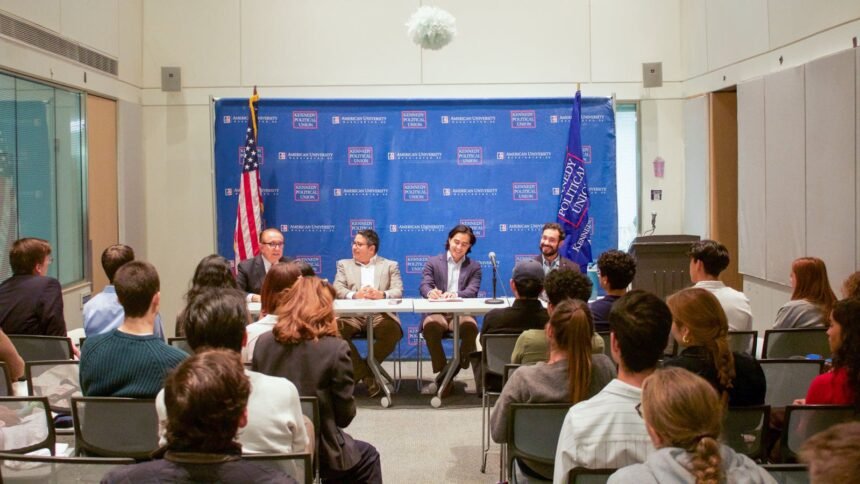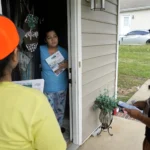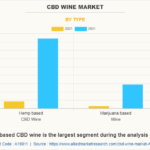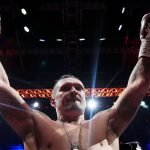Several organizations hosted a panel on Oct. 8 of various guest speakers to celebrate Hispanic Heritage Month and discuss the importance of activism and civic engagement in the broader Hispanic community.
The Kennedy Political Union, the Mexican Culture Club, the Puerto Rican Student Association, the First-Generation Student Union and the League of United Latin American Citizens hosted the discussion in the Battelle-Tompkins Atrium. Ali Valenzuela, an associate professor in the School of Public Affairs’ Department of Government and an affiliate of the Center for Latin American and Latino Studies, moderated the panel.
Panelists included Mickey Ibarra, who served as the director of the White House Office of Intergovernmental Affairs for President Bill Clinton and is now the Chairman of the Latino Leaders Network located in D.C. Ernesto Castañeda also spoke on the panel as the director of American University’s Center for Latin American and Latino Studies and founder of the Immigration Lab on campus. The final panelist was Daniel Domsky, a junior at the School of International Service and the president of the Mexican Culture Club.
The three panelists began by giving the audience a glimpse into their backgrounds and explaining why they decided to become involved in advocacy.
Ibarra began his career as a teacher in Utah Public Schools. He went on to work with his teacher union and the National Education Association before being offered the opportunity to work in the Clinton administration. Ibarra said this opportunity led him to establish the Latino Leaders Network.
“I consider myself a career advocate,” Ibarra said. “I’d like to believe I was a good advocate for my students. I like to believe I was a good advocate for the teachers that I represented. A good advocate for President Clinton and Vice President Gore at the White House, a good advocate for my clients at the Ibarra Strategy Group, and also a good advocate for my community and our leadership at the Latino Leaders Network.”
Castañeda is a researcher and advocate who has dedicated his career to debunking myths about immigration through his many books. His most recent book, “Immigration Realities: Challenging Common Misconceptions” is a “practical, evidence-based primer on immigrants and immigration.”
“What is cool about this book is that, first of all, it is for a wider audience… It’s based on research, but it’s translated so that anybody with a high school diploma or less can understand what the takeaways are,” Castañeda said. “We do that type of advocacy for immigrants and for reality.”
Being a former teacher himself, Ibarra emphasized the impact of his teachers on his success and career. He reflected on a teacher he had in high school who provided students with an opportunity for extra credit if they went to see Robert Kennedy speak in 1964.
“I never could have imagined walking in the West Wing of the White House to my office above the Oval Office to represent the President of the United States, a little half-Mexican kid raised in foster care in Salt Lake City, Utah,” Ibarra said. “That experience as a young high school student in Sacramento, I think, really lifted my aspirations.”
When asked about the biggest challenges faced by the panelists as Hispanic people in the United States and how they have overcome them, Domsky emphasized the importance of “perception.”
“The reason why we decided to [create] the Mexican club was because some people might have an idea that Mexicans are like this, or Latinos are this,” Domsky said. “If you just reach out you can end up just having open conversations.”
Castañeda touched on similar ideas when discussing the importance of inclusion and diversity in educational and political fields.
“One of the best ways to make a democracy stronger is by including more groups,” Castañeda said. “They are trying to divide all across by gender and different demographics. And we have to speak back, not be limited and look at the facts.”
Ibarra expanded on the importance of civic engagement in the Hispanic community.
“The fact of the matter is, we do not have an option to give up and we’ve got to continue to work to bring us together,” Ibarra said.
The room was filled with members of the University community from various backgrounds. Estrella Matin, a freshman in the School of International Service, found the panel very uplifting.
“[Events like this] connect you with leaders and you can put a face to a name,” Matín said. “On paper, these people sound really intimidating, but then seeing them face to face and hearing ‘you can just talk to me and I will mentor you,’ makes it feel like they’re on your side.”
Safiyah Edmondson, a junior in the College of Arts and Sciences, echoed this sentiment.
“It’s important to educate the majority of the student body of [Hispanic students’] existence and reaffirm our belonging on campus,” Edmondson said.
This article was edited by Payton Anderson, Tyler Davis and Abigail Turner. Copy editing done by Luna Jinks, Sabine Kanter-Huchting, Ella Rousseau and Ariana Kavoossi.











